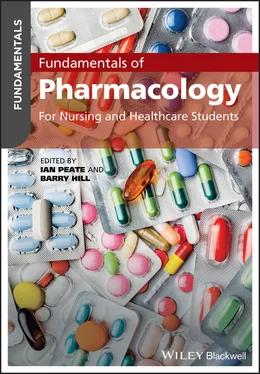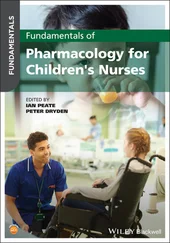Medicines optimisation is concerned with ensuring that the right patients get the right choice of medicine, at the right time. When healthcare providers focus on patients and their experiences, there is much potential to help patients improve their outcomes, take their medicines correctly, avoid taking unnecessary medicines, reduce wastage of medicines and improve medicines safety. Medicines optimisation can help to encourage patients to take ownership of their treatment. In order to ensure medicines optimisation reaches its full potential, this requires a multidisciplinary team working approach. Healthcare professionals work together to individualise care, monitor outcomes, review medicines and support patients when needed.
Medicines management is different to medicines optimisation in a number of ways; most importantly it focuses on outcomes and patients as opposed to process and systems. Focusing on improved outcomes can help to ensure that patients and the NHS get better value from their investment in medicines. Medicines optimisation considers how it is that patients use medicines over time. This can involve stopping some medicines as well as starting others and utilising opportunities that may arise for lifestyle changes and nonmedical therapies to reduce the need for medicines.
Patient beliefs and medicines
Patients' beliefs and preferences about medication prescribing may affect medication adherence. Clyne et al. (2017) point out that patients' beliefs about treatment are a critical influence on prescription medication use. Patients may influence prescribing decisions on the basis of their expectations or, in some cases, their unwillingness to take medicines. Patients' strong beliefs in medicines, their expectations and resistance to change are cited as important barriers to prescribing.
Bearing in mind the important role that beliefs can play in medication use, it is important for the nurse to acknowledge this and to explore the beliefs of patients. Non‐adherence can result in morbidity and mortality, unnecessary health costs, unnecessary investigations and changes in treatment regimens. Neame and Hammond (2005) conclude that people with strong beliefs in the necessity of taking medication to maintain their health were found to be more adherent to treatment, and those with higher levels of concern about medication, commonly about the dangers of dependence and long‐term side effects, were more likely to be non‐adherent.
A Scandinavian study (Mårdby et al., 2009) considered beliefs, not of patients but of doctors and nurses in an outpatient setting; their aim was to explore general beliefs about medicines among doctors and nurses. They concluded that nurses saw medicines as more harmful and less beneficial than did doctors. The profession's different beliefs about medicines are important factors for adherence to medicines, just as patients' beliefs are.
There are many reasons for non‐adherence and one reason may lie between the expectations of health professionals and the behaviour of patients where there is a failure to recognise that the views and expectations of patients are key factors associated with medicine taking. Patients' beliefs and goals must be at the centre of decision‐making about their medicines, so the process of selecting and providing care has to be one of partnership and negotiation between the patient and health professionals.
Patients are invited to make informed decisions about all aspects of their care, and this comes with support from health professionals. In order to make an informed decision, then, these decisions have to be well informed. Health professionals are required to provide information that is appropriate and that fits with the patient's health beliefs, they are also required to offer that information in such a way that it is understandable to each individual. The RPS (2016) provides a framework for reaching a shared decision (see Box 1.1.)
It can be hard to decide how much information to give a patient; for example, which side effects to mention, where to obtain specialised information, as well as where the boundary of responsibility lies between the health professional and the patient. Chapter 3of this book addresses some of the ethical and legal issues that are associated with medicines management and pharmacology.
Box 1.1Reaching a shared decision
Work with the patient and, if appropriate, carer in partnership to make informed choices, agreeing a plan that respects patient preferences, including their right to refuse or limit their treatment.
Identify and respect the patient with regards to diversity, values, beliefs and expectations regarding their health and treatment with medicines.
Routinely assess adherence in a non‐judgmental way and understand the different reasons that non‐adherence may occur (this may be intentional or non‐intentional) and how best to offer support.
Build a therapeutic relationship with the patient that encourages two‐way effective communication.
With the patient and carer, explore satisfactory outcomes for the patient/carer.
Source: Adapted RPS (2016)
Concordance, adherence and compliance are terms that reflect fundamentally different approaches to care. When applied in its strict scientific definition, compliance is a useful term; however, it can also infer ‘nurse or doctor knows best’ and may be interpreted as condescending whereby patients do as they are told or advised. Compliance describes a patient's behaviour and concordance implies a process. It is appropriate, therefore, to refer to non‐compliant patients, but not to non‐concordant patients. The relationship between the patient and the health professional is non‐concordant, not the patient. NICE (2009) have determined that adherence presumes an agreement between the prescriber and patient about the prescriber's recommendations. Adherence to medicines is defined as the extent to which the patient's action matches the agreed recommendations. When there is non‐adherence, this has the potential to limit the benefits of medicines resulting in a lack of improvement, or a deterioration in health and wellbeing. The economic costs, suggest NICE (2009), are not only limited to wasted medicines but will also include the knock‐on costs that arise from increased demands for healthcare if the person's health deteriorates.
Honouring individual choices and beliefs are the hallmarks of professional healthcare providers (NMC, 2018a). Being aware of the individual's values, acceptance of these values and asking or seeking clarification are essential if the person is to be respected. This can also have a positive impact on medicine adherence.
Clinical considerations
Medicines management
In the UK, one in four adults experience mental health problems in their lifetime, with one in six experiencing a diagnosable mental health problem in any one year (Mental Health Foundation, 2016). People with mental health problems may die prematurely; the life expectancy of someone with bipolar disorder or schizophrenia is 15–20 years less than the general population (Hjorthø et al., 2017). Often this is because their physical health suffers due to the fact that they are unable to cope and deal with their long‐term condition in a regular and coherent way. The main risks that are specific to those with mental health conditions in terms of premature death include diabetes, obesity, hypertension, lack of exercise and smoking. It is estimated that one in three of the 100 000 people who die avoidably each year in England has a mental illness (Royal Pharmaceutical Society, 2018b).
Many of the medicines that are used to treat mental health problems are also associated with health risks. Pharmacists are experts in medicines and their use and can ensure that people get the best outcomes from their medicines, help to reduce adverse events, minimise any avoidable harm and unplanned admissions to hospital, while also ensuring that resources are used in an efficient way to deliver the standard and level of care that those with mental health conditions deserve. A multidisciplinary approach to medicines optimisation is advocated.
Читать дальше












